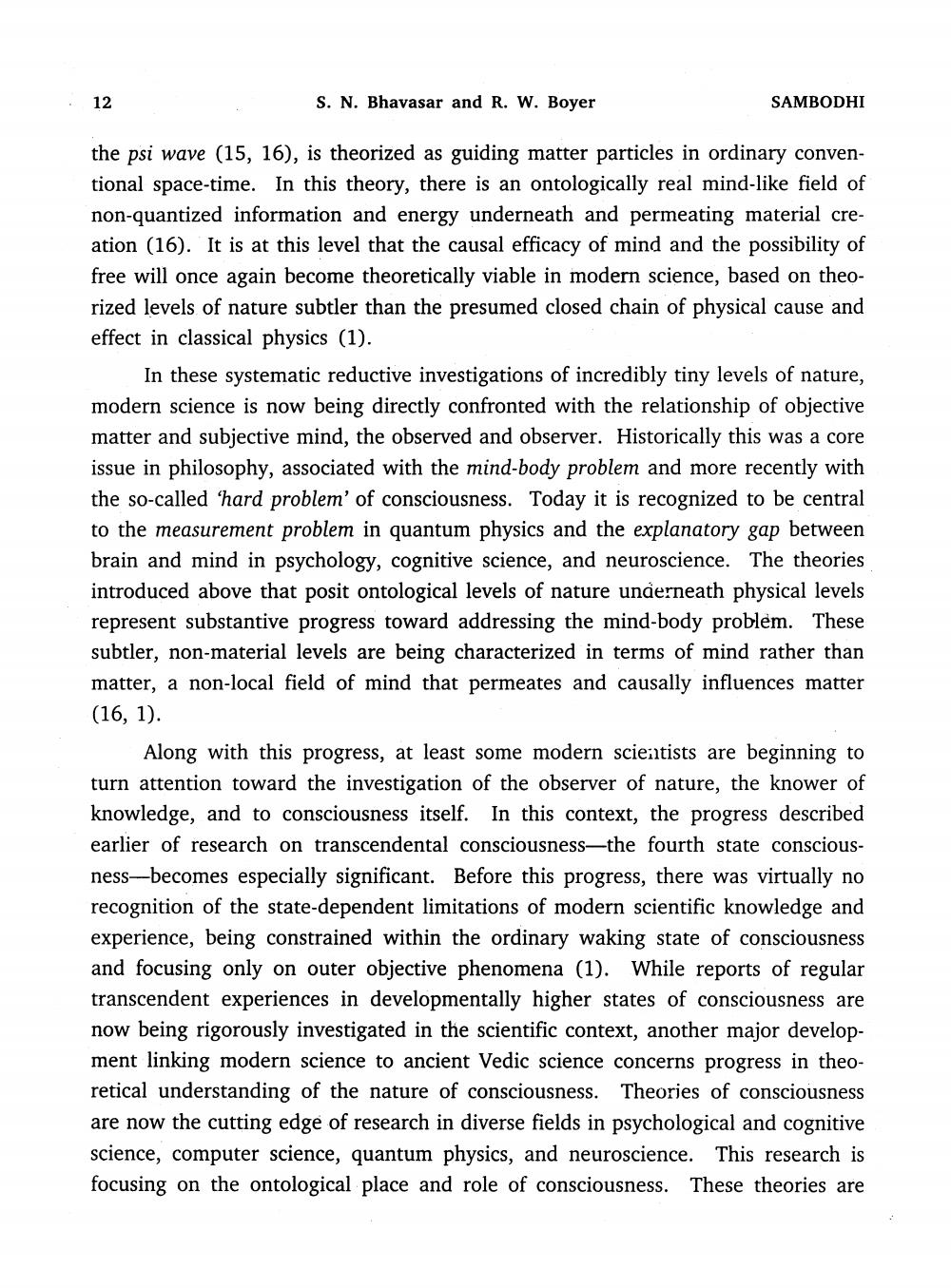________________
·
12
S. N. Bhavasar and R. W. Boyer
SAMBODHI
the psi wave (15, 16), is theorized as guiding matter particles in ordinary conventional space-time. In this theory, there is an ontologically real mind-like field of non-quantized information and energy underneath and permeating material creation (16). It is at this level that the causal efficacy of mind and the possibility of free will once again become theoretically viable in modern science, based on theorized levels of nature subtler than the presumed closed chain of physical cause and effect in classical physics (1).
In these systematic reductive investigations of incredibly tiny levels of nature, modern science is now being directly confronted with the relationship of objective matter and subjective mind, the observed and observer. Historically this was a core issue in philosophy, associated with the mind-body problem and more recently with the so-called 'hard problem of consciousness. Today it is recognized to be central to the measurement problem in quantum physics and the explanatory gap between brain and mind in psychology, cognitive science, and neuroscience. The theories introduced above that posit ontological levels of nature underneath physical levels represent substantive progress toward addressing the mind-body problem. These subtler, non-material levels are being characterized in terms of mind rather than matter, a non-local field of mind that permeates and causally influences matter (16, 1).
Along with this progress, at least some modern scientists are beginning to turn attention toward the investigation of the observer of nature, the knower of knowledge, and to consciousness itself. In this context, the progress described earlier of research on transcendental consciousness—the fourth state consciousness-becomes especially significant. Before this progress, there was virtually no recognition of the state-dependent limitations of modern scientific knowledge and experience, being constrained within the ordinary waking state of consciousness and focusing only on outer objective phenomena (1). While reports of regular transcendent experiences in developmentally higher states of consciousness are now being rigorously investigated in the scientific context, another major development linking modern science to ancient Vedic science concerns progress in theoretical understanding of the nature of consciousness. Theories of consciousness are now the cutting edge of research in diverse fields in psychological and cognitive science, computer science, quantum physics, and neuroscience. This research is focusing on the ontological place and role of consciousness. These theories are




